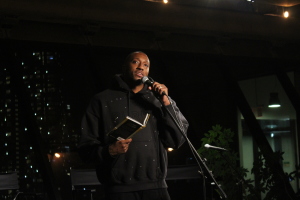Do you have a blind heart?

At the end of the Kyle Rittenhouse trial in November 2021 when he was acquitted of all five charges against him, NBC anchor and correspondent Maria Shriver tweeted, “I’m trying to take a beat to digest the Rittenhouse verdict. My son just asked me how it’s possible that he didn’t get charged for anything. How is that possible? I don’t have an answer for him.”
Really Maria? No clue at all as to how the jury found Kyle innocent? You’ve been in the news business since 1978 and somehow all the defense evidence presented before, during, and after the trial somehow escaped your notice? Heck, your news organization was so close to the Rittenhouse trial that your colleagues were illegally tailing the buses transporting the jurors.
Shriver’s attempt at feigning unfamiliarity with the truth in the Rittenhouse case reminds me of a quote from Aldous Huxley: “Most ignorance is vincible ignorance. We don't know because we don't want to know. It is our will that decides how and upon what subjects we shall use our intelligence.”
There seems to be an endless supply of this type of cognitive dissonance behavior in our culture today and, truth be told, it’s been going on forever, especially when it comes to the subject of God.
Seeing (or not) with the heart
Encouraging his Ephesian readers to live a sanctified life, Paul says, “So this I say, and affirm together with the Lord, that you walk no longer just as the Gentiles also walk, in the futility of their mind, being darkened in their understanding, excluded from the life of God because of the ignorance that is in them, because of the hardness of their heart; and they, having become callous, have given themselves over to sensuality for the practice of every kind of impurity with greediness” (Eph. 4:17-19).
This excerpt from Paul’s letter contains three heavyweight verses bursting at the seams with insight into the cultural chaos we’re experiencing today. He gives a perfect description of those far from God: futile (i.e., fruitless) minds, darkened understanding, ignorance, hard hearts, callous emotions, which leads to a polluted society.
I’m not normally a user of the KJV or NKJV translations of Scripture, but I think they have a very insightful translation of verse 18: “Having the understanding darkened, being alienated from the life of God through the ignorance that is in them, because of the blindness of their heart…” (my emphasis).
The Greek word pórósis, translated “blindness,” literally means wrapping oneself with a hard callous-like covering so that sight is impossible. We usually only associate blindness with the eyes, but Scripture speaks often about the heart “seeing” or not seeing. The Bible uses it as a figurative object that represents a person’s will and their inclination to accept or reject truth.
We see Christ referring to this kind of “sight” many times.
For example, when He spoke to Nicodemus and said, “Truly, truly, I say to you, unless one is born again he cannot see the kingdom of God” (John 3:3, my emphasis), He didn’t mean “enter the kingdom of God” as we often think. Rather, the word horaó stands for “perceiving and then attending to a matter.” Unless you’re born again, you’re spiritually blind to the beauty that is the kingdom of God; you “see” no appeal in it.
John refers to this same thing when he discusses the miracles Jesus did before the people of His time: “though He had performed so many signs before them, yet they were not believing in Him. This was to fulfill the word of Isaiah the prophet which he spoke: “Lord, who has believed our report? And to whom has the arm of the Lord been revealed?” For this reason, they could not believe, for Isaiah said again, “He has blinded their eyes and He hardened their heart, so that they would not see with their eyes and perceive with their heart, and be converted and I heal them.” (John 12:37-40).
In this instance, we catch a glimpse of the theological doctrine concerning God’s judicious will that seals unbeliever’s fates.
Another example is Paul’s reference to unbelieving Jews whose “minds were hardened; for until this very day at the reading of the old covenant the same veil remains unlifted, because it is removed in Christ. But to this day whenever Moses is read, a veil lies over their heart; but whenever a person turns to the Lord, the veil is taken away’ (2 Cor. 3:14-16, my emphasis). The same Greek root is used in his verse as in Eph. 4:18 (“hardened”) to depict a covering over someone’s capacity to see and accept the truth.
A person in this condition doesn’t care about evidence, facts, truth, etc., but instead, as Huxley says, they choose not to “know” because they don’t want to know – it conflicts too much with their commitment to an opposing, presuppositional bias. Like Maria Shriver’s, it is a “vincible ignorance” (to use Huxley’s term), but in this case, it needs God’s intervention to overcome it.
Once that happens, as in the case of Paul, scales fall from their eyes (Acts. 9:18) because the truth has been accepted in their heart – they have been gifted with 20/20 spiritual vision. Let’s hope and pray that, one by one, God changes many of the blind hearts we come across today so they can experience the freeing of their will and the enjoyment of living in His truth.
Robin Schumacher is an accomplished software executive and Christian apologist who has written many articles, authored and contributed to several Christian books, appeared on nationally syndicated radio programs, and presented at apologetic events. He holds a BS in Business, Master's in Christian apologetics and a Ph.D. in New Testament. His latest book is, A Confident Faith: Winning people to Christ with the apologetics of the Apostle Paul.



























